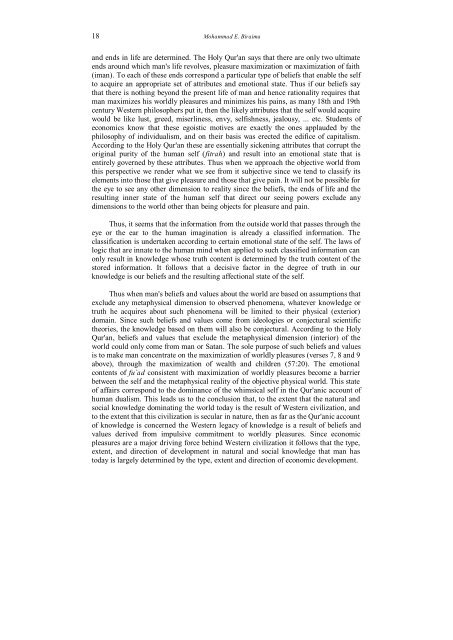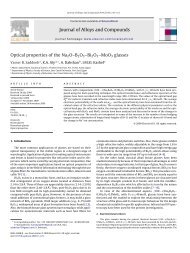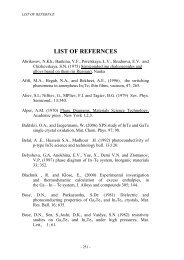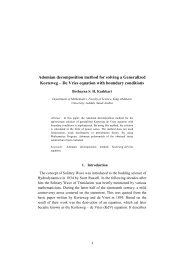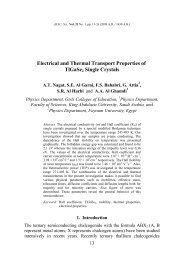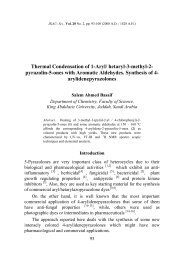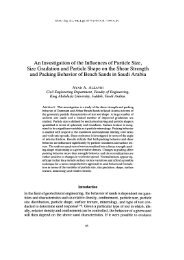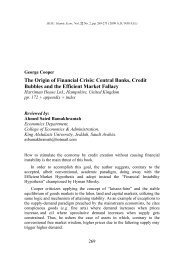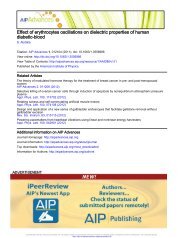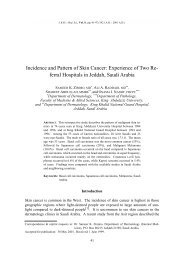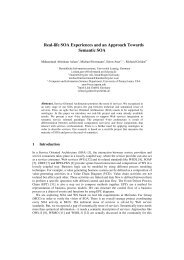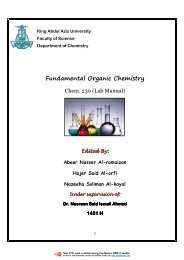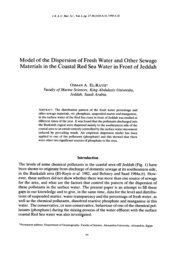A Qur'anic Model for a Universal Economic Theory
A Qur'anic Model for a Universal Economic Theory
A Qur'anic Model for a Universal Economic Theory
You also want an ePaper? Increase the reach of your titles
YUMPU automatically turns print PDFs into web optimized ePapers that Google loves.
18 Mohammad E. Biraima<br />
and ends in life are determined. The Holy Qur'an says that there are only two ultimate<br />
ends around which man's life revolves, pleasure maximization or maximization of faith<br />
(iman). To each of these ends correspond a particular type of beliefs that enable the self<br />
to acquire an appropriate set of attributes and emotional state. Thus if our beliefs say<br />
that there is nothing beyond the present life of man and hence rationality requires that<br />
man maximizes his worldly pleasures and minimizes his pains, as many 18th and 19th<br />
century Western philosophers put it, then the likely attributes that the self would acquire<br />
would be like lust, greed, miserliness, envy, selfishness, jealousy, ... etc. Students of<br />
economics know that these egoistic motives are exactly the ones applauded by the<br />
philosophy of individualism, and on their basis was erected the edifice of capitalism.<br />
According to the Holy Qur'an these are essentially sickening attributes that corrupt the<br />
original purity of the human self (fitrah) and result into an emotional state that is<br />
entirely governed by these attributes. Thus when we approach the objective world from<br />
this perspective we render what we see from it subjective since we tend to classify its<br />
elements into those that give pleasure and those that give pain. It will not be possible <strong>for</strong><br />
the eye to see any other dimension to reality since the beliefs, the ends of life and the<br />
resulting inner state of the human self that direct our seeing powers exclude any<br />
dimensions to the world other than being objects <strong>for</strong> pleasure and pain.<br />
Thus, it seems that the in<strong>for</strong>mation from the outside world that passes through the<br />
eye or the ear to the human imagination is already a classified in<strong>for</strong>mation. The<br />
classification is undertaken according to certain emotional state of the self. The laws of<br />
logic that are innate to the human mind when applied to such classified in<strong>for</strong>mation can<br />
only result in knowledge whose truth content is determined by the truth content of the<br />
stored in<strong>for</strong>mation. It follows that a decisive factor in the degree of truth in our<br />
knowledge is our beliefs and the resulting affectional state of the self.<br />
Thus when man's beliefs and values about the world are based on assumptions that<br />
exclude any metaphysical dimension to observed phenomena, whatever knowledge or<br />
truth he acquires about such phenomena will be limited to their physical (exterior)<br />
domain. Since such beliefs and values come from ideologies or conjectural scientific<br />
theories, the knowledge based on them will also be conjectural. According to the Holy<br />
Qur'an, beliefs and values that exclude the metaphysical dimension (interior) of the<br />
world could only come from man or Satan. The sole purpose of such beliefs and values<br />
is to make man concentrate on the maximization of worldly pleasures (verses 7, 8 and 9<br />
above), through the maximization of wealth and children (57:20). The emotional<br />
contents of fu`ad consistent with maximization of worldly pleasures become a barrier<br />
between the self and the metaphysical reality of the objective physical world. This state<br />
of affairs correspond to the dominance of the whimsical self in the <strong>Qur'anic</strong> account of<br />
human dualism. This leads us to the conclusion that, to the extent that the natural and<br />
social knowledge dominating the world today is the result of Western civilization, and<br />
to the extent that this civilization is secular in nature, then as far as the <strong>Qur'anic</strong> account<br />
of knowledge is concerned the Western legacy of knowledge is a result of beliefs and<br />
values derived from impulsive commitment to worldly pleasures. Since economic<br />
pleasures are a major driving <strong>for</strong>ce behind Western civilization it follows that the type,<br />
extent, and direction of development in natural and social knowledge that man has<br />
today is largely determined by the type, extent and direction of economic development.


